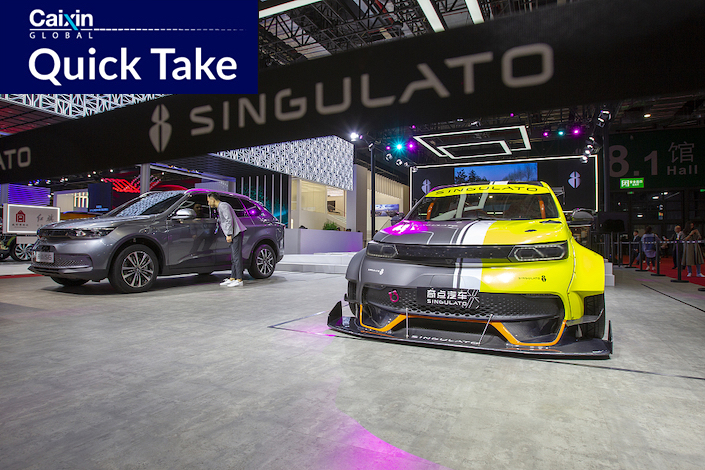
What's new: Singulato Motors, one of China’s earliest new-energy vehicle startups, entered bankruptcy liquidation after allegedly raising $2.3 billion in funding without delivering any vehicles.
Several entities related to Singulato started the winding-down process in late June, according to a national bankruptcy cases portal. The parent company, Zhiche Youxing Technology Shanghai Co. Ltd., faced debt claims totaling 98.3 million yuan ($13.5 million) as of Aug. 20.
Established in 2014, Singulato was among China’s earliest electric-car pioneers along with Nio Inc. and XPeng Inc. The company announced eight rounds of fundraising over several years totaling 17 billion yuan from investors including Intel Capital and Anhui government-backed funds.
But the company received only 5 billion yuan in actual funding, sources told Caixin. Several company employees told Caixin that not all the proceeds were used for carmaking, blaming management’s inadequate investment for the business failure.
Background: Singulato was one of many Chinese startups that rushed into the burgeoning new-energy vehicle industry, spurred by central and local governments offering generous subsidies to put industry development on the fast track.
Founded by Shen Haiyin, a former vice president of software giant Qihoo360, Singulato unveiled its first electric car model, the is6, at the Shanghai International Auto Show in April 2017. At the same event, Nio released its first model, the ES8, which hit the market several months later. But mass production of Singulato’s is6 was repeatedly delayed.
A liquidity crunch at Singulato emerged in 2019 as the company delayed payments to suppliers and employees. Singulato stopped all payments to employees in March 2021, company sources said. The workforce has reduced to fewer than 100 in mid-2022 from the peak of more than 2,000 in early 2019.
As of April 30, Singulato had total assets of 1.1 billion yuan with liabilities of 515 billion yuan. However, multiple creditors said the company’s assets mostly consist of intellectual property rights, and its factory equipment was sold off as early as 2020.
Contact reporter Han Wei (weihan@caixin.com) and editor Bob Simison (bob.simison@caixin.com)
Get our weekly free Must-Read newsletter.







